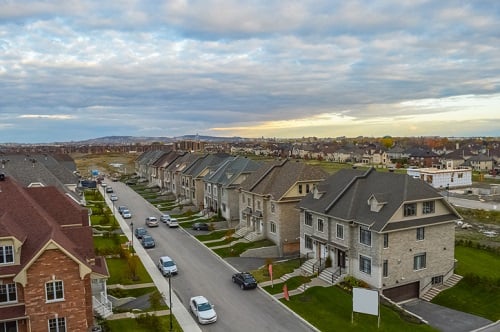Positive results might not be visible right out of the bat

Real estate experts say the British Columbia government started to build a strong foundation for more affordable housing in this week’s budget, but opinion varies on the expected outcomes.
Finance Minister Carole James is trying to ease the province’s housing crisis by introducing a new tax on property speculators, expanding and increasing a tax on foreign homebuyers and spending $6 billion to build affordable housing over the next decade.
James said she is expecting to see property values start to drop as her budget measures kick in.
“There’s no question people are going to want to live in B.C. But we need to see a moderation and my hope is, by addressing both supply and demand, you'll see more supply in the market that will ease some of the cost pressures and you'll see a moderation,” James said Wednesday (February 21) after speaking to the Greater Victoria Chamber of Commerce.
Tom Davidoff of the University of British Columbia’s Sauder School of Business said he hopes the speculation tax will help make the lower end of the market more affordable, particularly for condos.
The levy will be introduced this fall, targeting foreign and domestic homeowners who do not pay income tax in B.C., including those who leave homes vacant.
In the 2018 tax year, the rate will be $5 per $1,000 of a property's assessed value. Next year, the rate will rise to $20 per $1,000 of assessed value. It will initially apply to Metro Vancouver, the Fraser Valley, the Victoria area, the Nanaimo Regional District, Kelowna, and West Kelowna.
A non-refundable income tax credit will also be introduced to offset the new levy, providing relief for people who do not qualify for an exemption but who pay income taxes in B.C.
Read more: Foreign buyer tax hike misses mark
James said B.C. residents with multiple properties, such as a summer cottage, will get the levy back as a credit on their income tax refund. But property owners from out of province will be dinged if they leave their B.C. home vacant, she added.
The tax makes a lot of economic sense, Davidoff said, because B.C. has high income and sales taxes but low property taxes, which encourages vacationers to buy property and makes life more expensive for workers.
“That is the worst possible idea in a market like Vancouver where you have a tremendous amenity level and it's so hard to build,” Davidoff told The Canadian Press. “We’re such a draw for people who don’t want to work here, but do want a lovely vacation home.”
People who are affected by the new levy might sell their properties, freeing up housing for locals, he added.
One issue the budget didn't directly address is zoning, Davidoff said, adding that the taxes on speculation and foreign buyers might provide some indirect help because they will “bash” the high end of the real estate market. That encourages people to push for changes in zoning density to keep their property values up, he explained.
“The property they own is going to be worth a lot less than it was before this tax. When you have new zoning, there’s a trade-off: your property becomes more valuable because you can put greater density on it, but you don't like what's happening to your neighbourhood,” Davidoff said.



